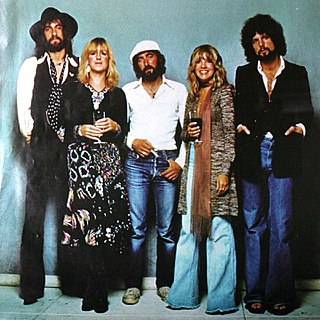
Fleetwood Mac are a British-American rock band, formed in London in 1967. Fleetwood Mac were founded by guitarist Peter Green, drummer Mick Fleetwood and guitarist Jeremy Spencer, before bassist John McVie joined the lineup for their self-titled debut album. Danny Kirwan joined as a third guitarist in 1968. Keyboardist Christine Perfect, who contributed as a session musician from the second album, married McVie and joined in 1970.

Robert Lawrence Welch Jr. was an American musician who was a member of Fleetwood Mac from 1971 to 1974. He had a successful solo career in the late 1970s. His singles included "Hot Love, Cold World", "Ebony Eyes", "Precious Love", "Hypnotized", and his signature song, "Sentimental Lady".
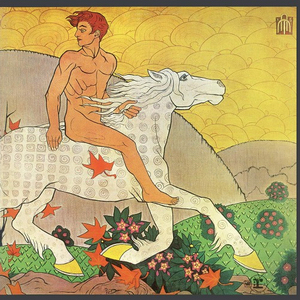
Then Play On is the third studio album by British blues rock band Fleetwood Mac, released on 19 September 1969. It was the first of their original albums to feature Danny Kirwan and the last with Peter Green. Jeremy Spencer did not feature on the album apart from "a couple of piano things". The album, appearing after the group's sudden success in the pop charts, offered a broader stylistic range than the classic blues of the group's first two albums. The album went on to reach #6 in the UK, subsequently becoming the band's fourth Top 20 hit in a row, as well as their third album to reach the Top 10. The title is taken from the opening line of William Shakespeare's play Twelfth Night — "If music be the food of love, play on".
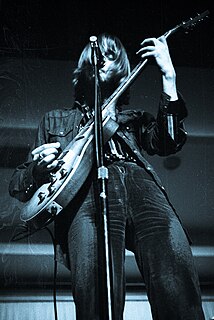
Daniel David Kirwan was a British musician whose greatest success came with his role as guitarist, singer and songwriter with the blues rock band Fleetwood Mac between 1968 and 1972. He released three albums as a solo artist from 1975 to 1979, recorded albums with Otis Spann, Chris Youlden, and Tramp, and worked with his former Fleetwood Mac colleagues Jeremy Spencer and Christine McVie on some of their solo projects. As a member of Fleetwood Mac, he was inducted into the Rock and Roll Hall of Fame in 1998.

"The Green Manalishi " is a song written by Peter Green and recorded by Fleetwood Mac. It was released as a single in the UK in May 1970 and reached No. 10 on the British charts, a position it occupied for four consecutive weeks, and was the band's last UK top 10 hit until "Tusk" reached No. 6 in 1979. "The Green Manalishi" was the last song Green made with Fleetwood Mac before leaving the band.
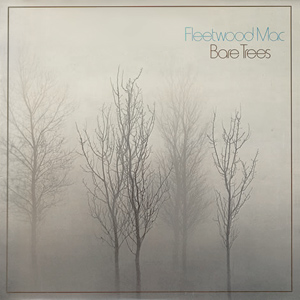
Bare Trees is the sixth studio album by British-American rock band Fleetwood Mac, released in March 1972. This is their last album to feature Danny Kirwan, who was fired during the album's supporting tour. In the wake of the band's success in the mid-1970s, Bare Trees peaked at number 70 on US Billboard 200 chart. The album was certified platinum by the Recording Industry Association of America (RIAA) in 1988.

Kiln House is the fourth studio album by British blues rock band Fleetwood Mac, released on 18 September 1970 by Reprise Records. This is the first album after the departure of founder Peter Green, and their last album to feature guitarist Jeremy Spencer. Christine McVie was present at the recording sessions and contributed backing vocals, keyboards and cover art, although she was not a full member of the band until shortly after the album's completion.

Hello There Big Boy! is an album by British blues rock musician Danny Kirwan, who was a member of Fleetwood Mac from 1968–72. Released in 1979 on the DJM Records label, this was his last solo album. It was eventually released on CD in February 2006, albeit only in Japan.

Live in Boston is a live album by British blues-rock band Fleetwood Mac that was first released in 1985.

Live at the BBC is a double compact disc compilation album by British blues rock band Fleetwood Mac, recorded at various BBC radio sessions between 1967 and 1971. It contains many tracks by Fleetwood Mac which are otherwise unavailable.
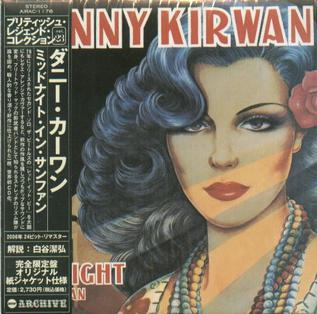
Midnight in San Juan is the second solo album by British blues rock musician Danny Kirwan, who was a member of Fleetwood Mac from 1968–72. Released in 1976, this was his second of three solo albums with the DJM Records label.

The Vaudeville Years of Fleetwood Mac 1968 to 1970 is an album by British blues rock band Fleetwood Mac, released in 1998. It was a compilation of outtakes and unreleased tracks from the band's early line up, none of which had previously seen the light of day officially. Available on double vinyl LP and double CD, it came with a booklet of extensive notes and anecdotes, and was the companion volume to Show-Biz Blues: Fleetwood Mac 1968–70, which was released a few years later.

Fleetwood Mac in Chicago is an album by the rock band Fleetwood Mac released on 5 December 1969. It was the result of a recording session in early 1969 at Chess Records in Chicago with Fleetwood Mac, then a young British blues band, and a number of famous Chicago blues artists from whom they drew inspiration. The album has also been released, with slightly different track listings, under the titles Blues Jam at Chess and Blues Jam in Chicago Volumes One and Two.
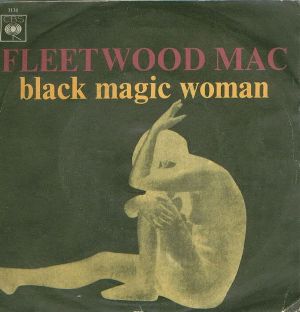
"Black Magic Woman" is a song written by British musician Peter Green, which first appeared as a Fleetwood Mac single in various countries in 1968. Subsequently, the song appeared on the 1969 Fleetwood Mac compilation albums English Rose (US) and The Pious Bird of Good Omen (UK), as well as the later Greatest Hits and Vintage Years compilations.

The Biggest Thing Since Colossus is an album by American blues musician Otis Spann, released in 1969. The album is also notable for the fact that Spann's backing band on this occasion were members of Fleetwood Mac, who were touring in America at the time. Spann had been involved in the recording of the Blues Jam at Chess album, and a rapport had been struck between Spann and the British band, which led to their participation on Spann's new album.

The Original Fleetwood Mac is a compilation album by British blues rock band Fleetwood Mac, first released in May 1971. It consists of various outtakes recorded by the first incarnation of the band in 1967–68. The album was re-released in 2000 with four extra tracks, and re-released in 2004 with seven different extra tracks.

Second Chapter is the debut solo album by British blues rock musician Danny Kirwan, released in 1975 on the DJM Records label. This was his first solo album after being dismissed from Fleetwood Mac in 1972, and his solo career was being managed by ex-Mac manager Clifford Davis.

Shrine '69 is a live album by British blues rock band Fleetwood Mac, recorded on 25 January 1969, and finally released in 1999. Recorded at a concert in Los Angeles, this album includes versions of the band's recent hits, "Albatross" and "Need Your Love So Bad", as well as more unusual songs like "Before the Beginning" and "Lemon Squeezer".
This is a discography for Danny Kirwan, one of the lead guitarists in Fleetwood Mac from 1968 to 1972. From 1975 to 1979 he had a brief solo career.
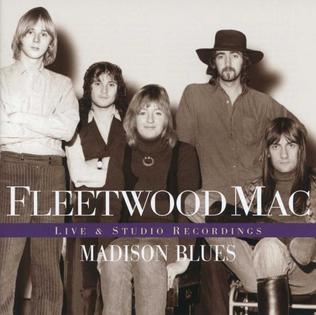
Madison Blues – Live & Studio Recordings is a compilation album by British blues rock band Fleetwood Mac, released in 2003. It is a compilation of BBC session tracks and live concert material from the band's first post-Peter Green line up, none of which had previously been officially released. It is unusual within Fleetwood Mac's catalogue as it focuses on the period between the successful Peter Green period and the start of the Bob Welch period which eventually led to another successful period for the band in the mid to late 1970s. Packaged as a double CD with a DVD interview with guitarist Jeremy Spencer, it came in a cardboard box with a foldout inner sheet.


















